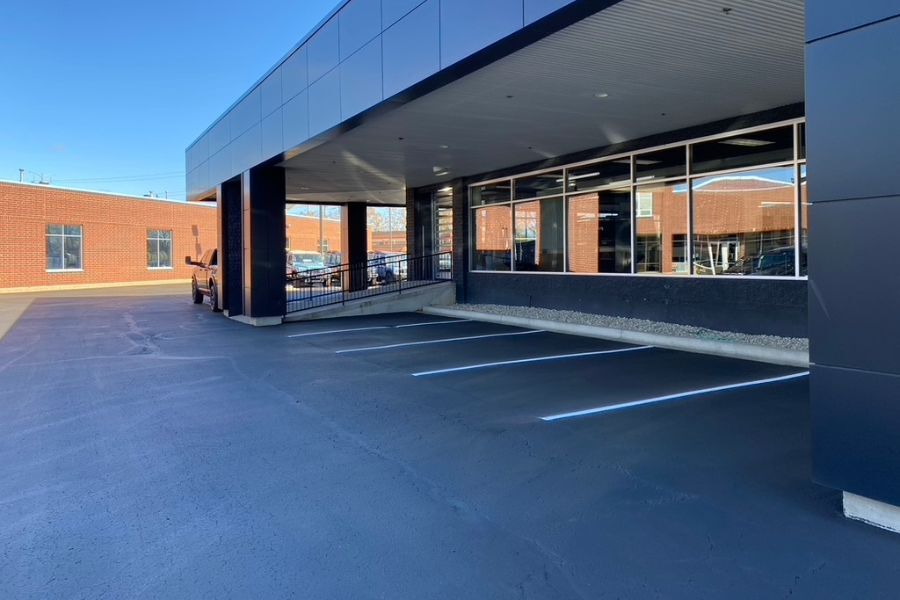February 15, 2025
Asphalt vs. Concrete For Commercial Parking Lots

When planning a commercial parking lot, one of the most critical decisions is choosing the right paving material. Both asphalt and concrete offer unique benefits, but the best choice depends on factors like budget, climate, maintenance needs, and aesthetic goals. Below, we’ll break down the differences to help you make an informed decision for your commercial parking lot.
Asphalt Durability & Longevity
Asphalt surfaces are flexible and well-suited for areas with heavy traffic and frequent freeze-thaw cycles. This flexibility allows them to withstand temperature changes without cracking significantly. With proper maintenance, including sealcoating and crack repairs, asphalt can last 15–20 years while maintaining its structural integrity.
Concrete Durability & Longevity
Concrete excels in strength and longevity, often lasting 20–30 years or more. Its rigid structure makes it ideal for high-traffic areas and heavy vehicles. While it’s less prone to wear, concrete can be susceptible to cracking in areas with extreme freeze-thaw cycles, but these issues are manageable with proper care.
Asphalt Installation & Cost
Asphalt installation is typically faster and more cost-effective than concrete, making it an attractive choice for businesses aiming to minimize downtime. Its lower initial cost is complemented by affordable repair and resurfacing options, although ongoing maintenance is necessary to preserve its condition.
Concrete Installation & Cost
Concrete requires a higher upfront investment and a longer installation process due to its curing time. However, its durability and lower maintenance needs make it a cost-effective option over the long term, especially for properties prioritizing longevity and aesthetic appeal.
Asphalt Climate Considerations
Asphalt performs well in colder climates, where its flexibility allows it to adapt to freeze-thaw cycles without significant damage. However, it can soften in high heat, potentially leading to rutting and deformation in extremely hot weather.
Concrete Climate Considerations
Concrete is an excellent choice for warmer climates, as it resists heat-related deformation better than asphalt. However, it may experience damage from freeze-thaw cycles in colder regions, making proper sealing and drainage systems essential in such areas.
Asphalt Maintenance Requirements
Asphalt requires regular maintenance, including sealcoating every 2–3 years to protect against UV damage and moisture infiltration. Cracks should be addressed promptly to prevent them from developing into larger issues. Routine maintenance is relatively affordable and straightforward.
Concrete Maintenance Requirements
Concrete needs less frequent maintenance but requires sealing to protect against discoloration and moisture damage. Repairs can be more complex and costly, but its overall durability often reduces the need for significant maintenance.
Contact Total Paving For a Free Quote In Northern Illinois & Southeastern Wisconsin
Still unsure which material suits your commercial property? Total Paving provides professional asphalt and concrete paving services tailored to your needs. Serving Northern Illinois and Southeastern Wisconsin, we’ll help you make the best choice for your business. Contact us today to discuss your project and get a free consultation.

